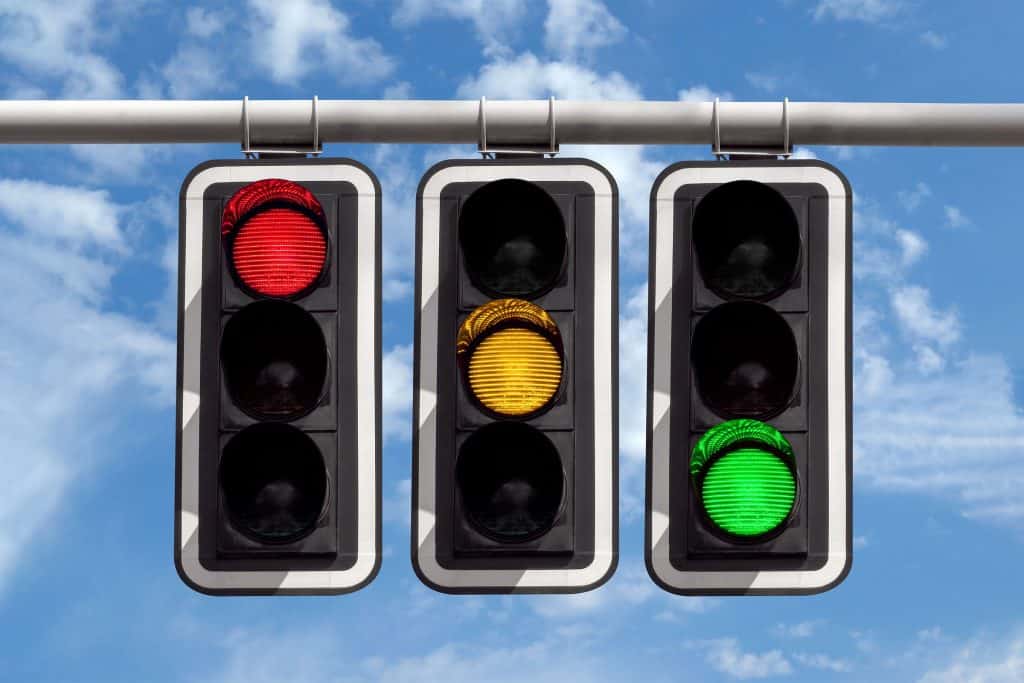The hardest part of wellness, or at least for most of the people I talk with, is to stop thinking of it as not being sick or ill. Yet there is nothing that new. I want to share a poem called And the People Stayed Home’ at the end of this newsletter, but read and then notice the year it was written!
It is a human condition connected with our impatience – trying to control the things we can accept what we cannot control and the wisdom to know the difference.

The visual to illustrate this is “living under the yellow light.”
Picture yourself at traffic lights. You are ready to hit the accelerator as soon as you are allowed, as you have some things to get off to, whether it is your sport, the event you want to attend, or even work.
As an aside, there is a little principle here that I find quite annoying, the greater the hurry I am in, the longer the light takes to change to green! Finally, the light turns green, and off we go.
However, we can see the next lights a little ways down the road. Here is where the problems start to begin. The walk signal at the side of the traffic light changes to the flashing red hand to stop walking.
Noticing what some drivers do here is where the challenges begin – we all know that the traffic light will be a short time until it turns yellow, then red. The roadway dynamics start to begin here.
Some drivers see the flashing hand; the light turns yellow, and they start slowing down. Other drivers see these same things and will begin to speed up. Usually, the ones wanting to speed up are behind the ones slowing down.
This same principle applies to most humans regarding our tug-of-war with wellness. When we feel the pressure or concerns start to creep in, a yellow light, some of us will want to slow down while others want to speed up.
The same principle applies to holidays, just like sitting at a red light when we are in a hurry; they take forever to get here and over in a flash. It could be looking forward to a new project or job starting, retirement, and suddenly, we just get started, and the next light starts to change on us – or turn yellow.
What is happening?
The greatest challenge is to stop being reactive. We call Canada a health care system, but is it? I have suggested that we do not have a healthcare system but a sick-care system. Isn’t this part of why so many of our personnel are not well, and financially it is not a sustainable model? We cannot afford to keep reacting to wrong things rather than keeping things healthy in the first place.
There’s an adage attributed to Benjamin Franklin, ‘an ounce of prevention is worth a pound of cure.’ Word historians say that when Franklin first used this expression, he was not discussing the disease but fire prevention. During a visit to Boston in 1733, Franklin was impressed with the city’s fire prevention methods. He tried to bring some of these practices to the town of Philadelphia, where he lived.
The key is prevention! Isn’t this where the challenge begins for most humans? I know it is for me.
When do we look after our physical health? When the doctor gives us the news, that could be better. Ideally, it is a scenario where lifestyle changes can correct it, but sometimes tragically, it is too far along. When do many of us look after relationships? We try to get them healthy after progressing into the yellow light zone. Doesn’t this same principle apply to many things? Whether it is mental, emotional, spiritual, or moral health, most of us wait until we see the yellow light. Hopefully, we do not leave it until it is a red light and we get stopped.
What can be done?
The FIRST thing to understand is the little principle of temptation. It is called HALT. Oscar Wilde once said, “I can reset anything except temptation.” However, there is a reality to notice; we are not tempted by the things we dread but by the things we desire. Walk by the fridge; we are tempted. In high school, how many of us were tempted to do stupid things? The issue is that we give in to the temptation of little things, seldom big things.
The trigger moments most of us get tempted are the times of HALT:
• Hungry – not just material things, but possessions, tiredness, a person, power, etc.
• Angry – we feel slighted, skipped over, mistreated, etc.
• Lonely – even in a crowd of a 1000 people
• Tired – but cannot sleep or need to press on.
First, check the flashing hand [in your life] to see if you see and hear these things, warning us that the lights will be changing for our wellness.
The SECOND thing is to look at wellness like a rechargeable battery principle. There are three ranges in a battery, just like traffic lights.
When the battery is green, we are good to go. When the battery is red, we are stopped and not going anywhere. The danger zone is yellow, as we can either start slowing down or try to speed up and press on.
There is a side note to be aware of when charging a battery. Think of your cell phone battery – most of us know that just because we put it on airplane mode does not mean it will recharge. The phone must get plugged in to be charged! There is another factor that happens, and only those of us who go to places outside of strong cell coverage will be aware of it. When a cell phone is in a poor range, it will keep searching for a signal and is ‘always on.’ We learned this the hard way by leaving our phones on, and within 10 hours, the battery was dead. We all wondered what had happened to the phones! The result is that it will drain the battery quicker than anything else. This same effect can occur when we are in a part of a building where the signal is not good, and we can be lucky if we get 8 hours out of the phone battery.
Some activities will work the same way. They drain our battery quicker than anything, and sometimes we do not notice how quickly this happens. We have gone into the red and have yet to be aware of it.
Unplugging from work will not recharge the battery; it is what we get plugged into that charges.
The THIRD thing. It has to be a values approach as these influence our decisions. There needs to be a why behind keeping healthy. This is not about ethics or doing something right but something far more profound.
Values are the guiding principles of behaviour that encapsulate our character, Business and organization’s character, and culture.
These are those things that feel important to us. They define what we would like people to say about us or what we are ‘in the dark’ as they supply meaning to our work and life.
It is a place where we are no longer willing to draw a line in the sand. Isn’t that a foolish statement? After all, every wind, heavy rain, or water will erase and move the line. Values are where we “draw a line in the wet concrete.”
After all, how do you and I e-value-ate when we need clarification on our values?
The FINAL thing is to focus on more than just physical or mental wellness. Think about something with me. Can you and I be mentally well if we are not well in our relationships, emotions, or spiritually?
Wellness is more than just a physical theme; it is about all six areas of being a fully healthy, thriving human – physical, emotional, mental, spiritual, relational, and moral.
As you start to enjoy the weather improving in warmth, think about your summer as the season between two traffic lights – it is a short enough season!
What will you do to charge your battery so you finish well?
It is the only way we can run toward the roar and thrive.
And the People Stayed Home
And people stayed home
and read books and listened
and rested and exercised
and made art and played
and learned new ways of being
and stopped
and listened deeper
someone meditated
someone prayed
someone danced
someone met their shadow
and people began to think differently
and people healed
and in the absence of people who lived in ignorant ways,
dangerous, meaningless, and heartless,
even the earth began to heal
and when the danger ended
and people found each other
grieved for the dead people
and they made new choices
and dreamed of new visions
and created new ways of life
and healed the earth completely
just as they were healed themselves.
Poem by Kathleen O’Meara ‘And the People Stayed Home’
was written in 1869, after the great famine. I cannot confirm the details of which one, though.


